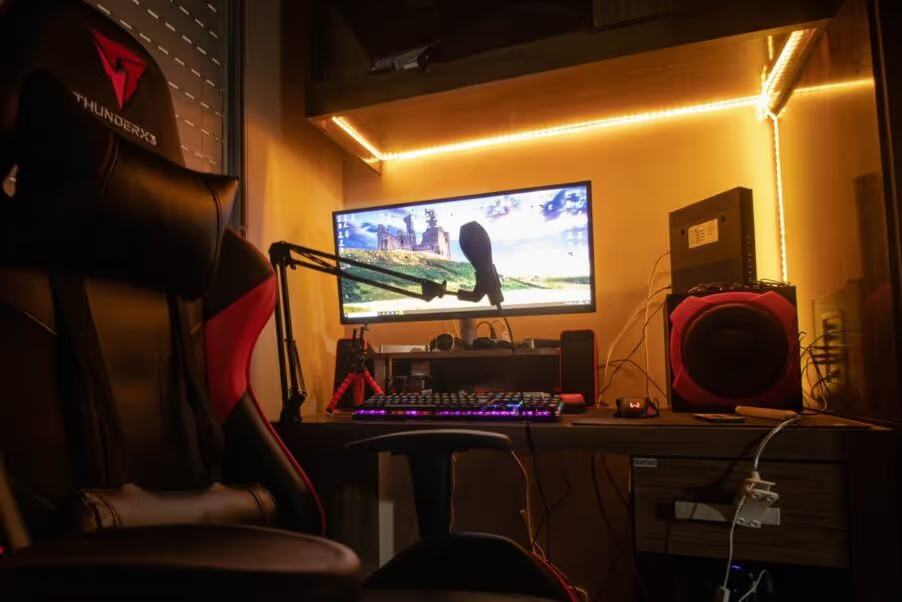
You’re looking for the best keyboard to start learning on.
Here we compare our favourite picks of weighted keyboards for beginners and why we like them.

Famous Yamaha players: Alen Golos, Kay Lucas, Sorin Zlat


Famous Casio players: Alicia Witt, Leon Thomasian


Famous Roland players: Brocket Parsons, Richard Vission, Jason Fresse



How many keys on a keyboard do I need as a beginner?
As a beginner, you might wonder, “How many keys on a keyboard do I need?” Well, it depends. Some keyboards have 88 keys, like a real piano. Having more keys means you can play a wider range of music. But if space or budget is a concern, keyboards with fewer keys, like 61 or 76, can still work well for learning. They’re lighter and easier to move around. Plus, fewer keys mean less overwhelming for beginners. However, you might miss out on playing certain pieces that require the full range of keys.
Does a keyboard need lots of sounds?
Having many sounds can add versatility to your playing. You can explore different genres and styles, keeping practice engaging. Plus, it allows you to experiment and find your unique sound. However, too many sounds might overwhelm beginners. It can be challenging to navigate through them all. Also, quality matters more than quantity. Having a few high-quality sounds is better than many low-quality ones. So, consider what sounds you need for your music journey. Quality and usability are key.
Does learning on a keyboard affect my piano playing?
It can help in some ways. Keyboards are more affordable and portable, making them accessible for beginners. Plus, they often have features like built-in metronomes and lesson modes, aiding in practice. However, keyboards usually have fewer keys and lack the touch sensitivity of pianos. This can affect your technique and expression when transitioning to a piano. Also, the weighted keys on a piano feel different from the keys on digital pianos, so it may take time to adjust. Learning on a keyboard is a good starting point, but nothing can 100% replicate the feeling of playing on a piano.
How much should I practice the keyboard?
Regular practice is key to improvement. Aim for consistency over long practice sessions. Short, focused sessions can be super effective. Practice what you struggle with the most. It’s better to practice smart than long. However, don’t overdo it. Too much practice can lead to burnout. Listen to your body and take breaks when needed. Set achievable goals to stay motivated. Remember, quality matters more than quantity. So, find a balance that works for you and stick to it. With dedication and patience, you’ll see progress over time.
It’s better to practice for 30 minutes every day rather than 3 hours every 3 days. This is due to your brain’s neuroplasticity.
What does a weighted keys keyboard mean?
Weighted keys have resistance when pressed. This mimics the feel weight of acoustic piano keys. It’s good for building finger strength and technique. Weighted keys help beginners develop proper playing habits. They promote better control and dynamics in playing. However, some may find them harder to press. This could be tiring for beginners. Also, weighted keyboards tend to be heavier. They may not be as portable as non-weighted ones. These types of keys provide a more authentic playing experience and feel more expressive. They’re preferred by many pianists for their realism.
How long should you practice piano a day?
Consistent practice is key to improvement. Aim for at least 30 minutes to an hour daily. Short, focused sessions can be effective. Practice what challenges you the most. It’s better to practice smart than long. However, don’t overdo it. Too much practice can lead to burnout or injury. Listen to your body and take breaks when needed. Set achievable goals to stay motivated. Remember, quality matters more than quantity. So, find a balance that works for you and stick to it. With dedication and patience, you’ll see progress over time.
How often should I practice the piano?
Aim for 4 to 5 sessions per week. Consistency is always the key to progress as this is the way our brains learn new information. Especially when it comes to muscle memory. Regular practice helps build muscle memory and skill. Short, focused sessions can be effective. Practice what challenges you the most. It’s better to practice smart than long. However, don’t overdo it. Too much practice can lead to burnout or injury. Listen to your body and take breaks when needed. Set achievable goals to stay motivated. Remember, quality matters more than quantity. Find a routine that fits your schedule and stick to it. With dedication and patience, you’ll see improvement over time.
What accessories do I need with my beginner keyboard?
A sustain pedal is essential. It adds a new dimension to your learning. A keyboard stand keeps your keyboard stable and at a comfortable height for playing. A keyboard bench provides proper seating for long practice sessions. A pair of studio headphones allow you to practice without disturbing others. A keyboard cover protects your keyboard from dust and damage when not in use.
Some of these accessories may not be necessary for beginners. It depends on your budget and how much space you have. Start with the basics and add more if you need to.





